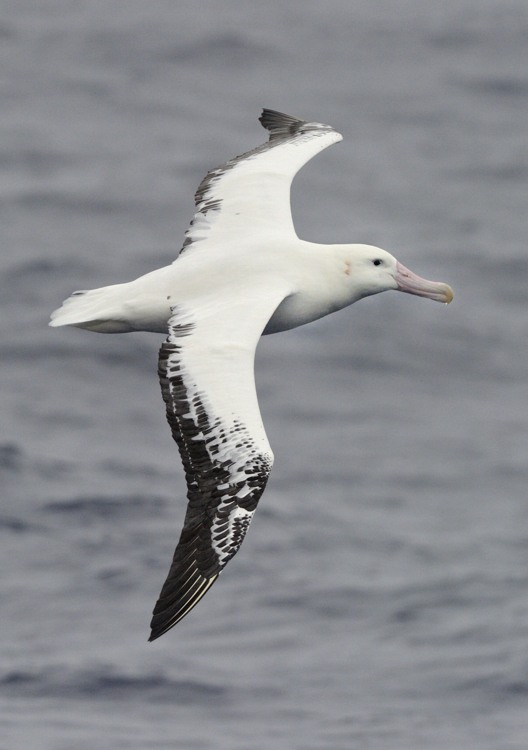Thomas Clay (School of Environmental Sciences, University of Liverpool, UK) and colleagues have published open access in the Journal of Animal Ecology on utilizing albatross and petrel bio-tracking data from South Georgia (Islas Georgias del Sur)* to identify “hot spot” overlaps with southern-hemisphere fisheries
The paper’s abstract follows:
“Incidental mortality (bycatch) in fisheries remains the greatest threat to many large marine vertebrates and is a major barrier to fisheries sustainability. Robust assessments of bycatch risk are crucial for informing effective mitigation strategies, but are hampered by missing information on the distributions of key life‐history stages (adult breeders and non‐breeders, immatures and juveniles).
Using a comprehensive biologging dataset (1,692 tracks, 788 individuals) spanning all major life‐history stages, we assessed spatial overlap of four threatened seabird populations from South Georgia, with longline and trawl fisheries in the Southern Ocean. We generated monthly population‐level distributions, weighting each life‐history stage according to population age structure based on demographic models. Specifically, we determined where and when birds were at greatest potential bycatch risk, and from which fleets.
Overlap with both pelagic and demersal longline fisheries was highest for black‐browed albatrosses, then white‐chinned petrels, wandering and grey‐headed albatrosses, whereas overlap with trawl fisheries was highest for white‐chinned petrels.
Hotspots of fisheries overlap occurred in all major ocean basins, but particularly the south‐east and south‐west Atlantic Ocean (longline and trawl) and south‐west Indian Ocean (pelagic longline). Overlap was greatest with pelagic longline fleets in May–September, when fishing effort south of 25°S is highest, and with demersal and trawl fisheries in January–June. Overlap scores were dominated by particular fleets: pelagic longline—Japan, Taiwan; demersal longline and trawl—Argentina, Namibia, Falklands, South Africa; demersal longline—Convention for Conservation of Antarctic Marine Living Resources (CCAMLR) waters, Chile, New Zealand.
Synthesis and applications. We provide a framework for calculating appropriately weighted population‐level distributions from biologging data, which we recommend for future fisheries bycatch risk assessments. Many regions of high spatial overlap corresponded with high seabird bycatch rates recorded by on‐board observers, indicating that our approach reliably mapped relative bycatch risk at large spatial scales. Implementation of effective bycatch mitigation in these high‐risk regions varies considerably. Although potential bycatch risk appears to have decreased since the early 2000s, albatross and petrel populations from South Georgia and elsewhere are still declining, emphasizing the need for much improved observer coverage and monitoring of compliance with bycatch regulations.”

Wandering Albatross in the Drake Passage - one of the species studied; photograph by Kirk Zufelt
Reference:
Clay, T.A., Small, C., Tuck, G.N., Pardo, FD., Carneiro, A.P.B., Wood, A.G., Croxall, J.P., Crossin, G.T. & Phillips, R.A. 2019. A comprehensive large‐scale assessment of fisheries bycatch risk to threatened seabird populations. Journal of Applied Ecology https://doi.org/10.1111/1365-2664.13407.
John Cooper, ACAP Information Officer, 29 May 2019
*A dispute exists between the Governments of Argentina and the United Kingdom of Great Britain and Northern Ireland concerning sovereignty over the Falkland Islands (Islas Malvinas), South Georgia and the South Sandwich Islands (Islas Georgias del Sur y Islas Sandwich del Sur) and the surrounding maritime areas.

 English
English  Français
Français  Español
Español